Original research completed in July 2018, and minor revisions August 2024 and January 2025.
Sugar is one of the five highest-value categories of goods likely to have been produced by forced labour*. That’s not something most people want to support.
*The others are cocoa, computers and electronics, clothing and fish and seafood.
The good news is, you don’t have to! This guide show you how to find ethical options when buying sugar.
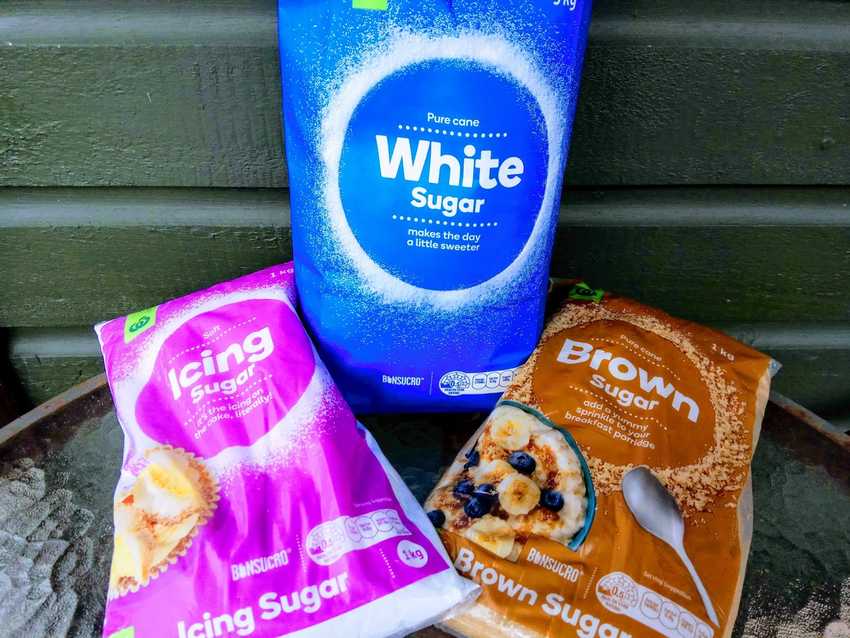
Or you might want to jump straight to our Recommendation List.
What’s the problem?
Child and forced labour is well-known in the sugar industry. The US Department of Labour reports that forced labour is used in the sugar industries of Brazil, Burma, Dominican Republic, Bolivia and Pakistan; and that child labour is used in the sugar industries of Turkey, Panama, Burma, Paraguay, Cambodia, Phillipines, Colombia, Thailand, Dominican Republic, Uganda, El Salvador, Vietnam, Guatemala, India, Kenya, Belize, Mexico, Boliva.
Another issue is that sugar prices are artificially subsidised or guaranteed in China, the EU, Guatemala, India, Indonesia, Thailand and the US.** This means that producers in other countries are competing with artificially inflated prices: this makes it hard for them to make a living, leading to cost-cutting practises like child labour, unsafe working conditions and forced labour. So, whilst I don’t want to buy sugar from those low income countries where it may have been grown or processed by children or slaves, I also don’t want to buy sugar from the EU or the US, as subsidies there are contributing to the problem.
**We’re relatively OK with low income countries such as China, Guatemala, India, Indonesia and Thailand subsidising their local industries. This feels different from the US or EU doing so, as there it is more likely ensuring an income for very vulnerable people.
How to buy sugar without supporting slavery and child labour

Quick tips
In New Zealand, most of us have heard of the Fairtrade certification for chocolate and bananas. When it comes to sugar, besides Fairtrade, some good options to look out for are the Bonsucro and World Fair Trade Organisation logos. Australian grown sugar is also all slave free.
Woolworth’s own brand sugar has Bonsucro certification. They do:
- white sugar
- brown sugar
- caster sugar
- icing sugar
- raw sugar
Woolworths own brand golden syrup is also slave-free as it’s made with Australian sugar.
The Ferrero confectionery range is all made with Bonsucro sugar: this includes tic tacs, Nutella and Kinder surprise as well as Ferrero rocher chocolates. They do not display the Bonsucro logo as that can only be used on products that are 100% sugar, not mixed products like these.
Trade Aid sugar is produced by members of the World Fair Trade Organisation. They do:
- muscovado sugar
- golden granulated sugar
- organic cane sugar
WFTO certified organic raw sugar is also available online from Pure Nature (this is food grade, even though it’s from a cosmetics-ingredients company) and is used in sodas and soda syrups produced by Six Barrel Soda Co.
Sugary products with Fairtrade certification include:
- Karma Cola soft drinks
- Ben and Jerry’s ice cream
- The Goodness coffee and dessert syrups
- Bubs sweets in bags (but not loose Bubs sweets). These are also vegan.
From correspondence (24/8/22), the whole Little Island range is made with Fairtrade sugar. This includes vegan ice cream, nice blocks, milk and yoghurt. They do not display the logo.
Sugary products made with 100% Australian sugar include:
- Bundaberg ginger beer
- Coca cola’s drinks (a huge range including flavoured milks, juices etc., not just Coke branded sodas)
- Bickfords drinks (cordials, iced coffee syrups and flavoured non-dairy milks)
- Nesquik and Milo drink mixes and related products
- Woolworths own brand jelly crystals and other products – look for a ‘product of Australia logo’ with a high percentage number
- Arnotts biscuits
See our article on Australian sugar for more options.
Note that many of these sugary treats also contain cocoa, which is at even higher risk of slavery in its supply chain than sugar. Not all of them use certified slave-free sugar: check our cocoa guide to see which do.
What do the certifications mean?
So there’s Fairtrade, World Fair Trade, Bonsucro… what does it all mean and what’s the difference?
Each certification has a slightly different area of focus (e.g. small farmers vs larger plantations) although they are all committed to being slave-free.
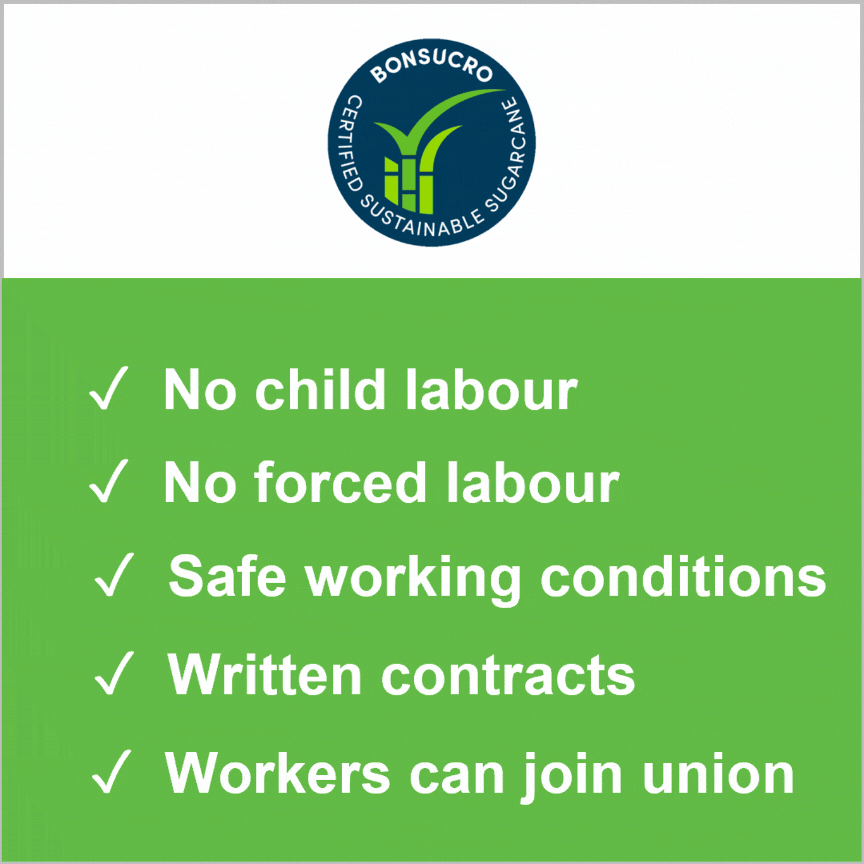
A few of the similarities and differences between the certifications. For a more comprehensive list click here.
Overall, wages and working conditions tend to be better for workers involved in Fairtrade or World Fair Trade Organisation productions. However as the two fair trade systems focus on helping small businesses, large plantations (which is how most sugar is grown globally) can’t join. So, for the individual grower, they are better off with one of the fair trade systems, but the Bonsucro certification has the potential to improve conditions for far more workers than either of the others.
Besides these three certifications, we’d also recommend products marked with ‘Product of Australia’. Australian produced sugar is usually safe as Australia is a country with strong labour laws.
Learn more about each of the certifications below.
Bonsucro
Bonsucro
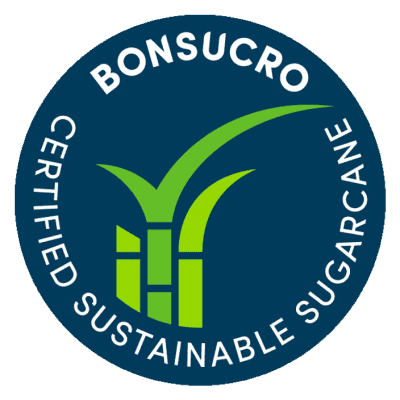

This is an independently audited certification that ensures the sugar farms and mills are free of child and slave labour. Bonsucro sugar has to meet strong labour rights standards which are rigorously audited by third-parties who interview staff and visit both farms and mills. With one exception, no Bonsucro-certified farms are in high-income countries with a subsidised sugar industry. The majority of Bonsucro-certified sugar comes from India and Brazil, although Woolworths’ likely comes from Australia.
Bonsucro certification isn’t widely used in New Zealand but it is common in Europe, especially on ethanol produced from sugarcane. It seems to be reliable: we couldn’t find anyone complaining that it doesn’t uphold the standards it claims - instead we found academics promoting it and encouraging NGOs to become involved with it. Bonsucro is also a member of the ISEAL alliance.
What products have this certification?
Woolworths own-brand sugar has been Bonsucro certified since 2018 (they’ve done this as part of their environmental sustainability efforts – see point 11 of their 2020 strategy). The Woolworths sugar range includes white sugar (in 1.5kg, 3kg and 5kg bags) as well as brown sugar, raw sugar, icing sugar and caster sugar (in 1kg and 500g bags).
The Ferrero confectionery range are made with Bonsucro sugar - this includes tic tacs, Nutella and Kinder surprise as well as Ferrero rocher chocolates.
WFTO (World Fair Trade Organisation)
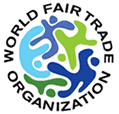

This is an excellent and widely-respected fair trade certification by the World Fair Trade Association. If you’re a visitor to Trade Aid physical stores or online store you might have noticed it on their food products. It is also explained on the Trade Aid website.
What products have this certification?
Trade Aid branded products including organic cane sugar, muscovado sugar, and golden granulated sugar. These products are sold in Trade Aid stores, online and through supermarkets, organic stores and other grocery outlets like Farro.
Fairtrade
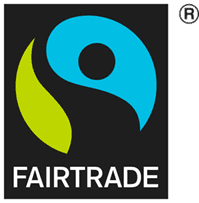

Fairtrade is probably the best-known and most widely used fair trade certification there is: it is highly reputable.
What products have this certification?
A number of sugary products also use Fairtrade certified sugar, including Ben and Jerry’s ice cream (see here for flavours and where to buy), Karma Cola soft drinks (see here for flavours and where to buy) and Nice Blocks ice blocks (see stockists here, including some Woolworths supermarkets, various Bin Inn stores, cafés, and organics shops). The Goodness cafe and dessert syrups are also Fairtrade certified: most stockists don’t sell to the public, but ask your favourite cafe to make the switch!
Product of Australia

Australia is a country with strong labour laws and a highly industrialised sugar industry: slavery and child labour do not occur there.
Products simply made in Australia may well use imported sugar, so aren’t necessarily slave free. However products marked ’Product of Australia’ or ‘Grown in Australia’ use 100% Australian grown ingredients, so any sugar in those is guaranteed Australian grown. Some other products are marked ‘Made in Australia from at least x% Australian ingredients’. For those, if the percentage is high (e.g. 90%) and sugar is one of the main ingredients (i.e. listed first or second on the ingredients list), you can be confident that product is made from Australian sugar.
For more, see our Australian sugar blogpost.
What products have this certification?
Woolworths own brand jelly crystals, waffle ice cream cones, apple pie, scotch fingers, buttermilk pancake mix, crown mints and probably other products we didn’t spot! It’s also on Nesquik, Milo, Uncle Toby’s and Passage Foods products. Some brands are also made from Australian sugar without using the logo. These include Bundaberg ginger beer, the Coca cola drinks range and Arnotts biscuits. For a comprehensive list of products we’ve found with Australian sugar see our Australian sugar blogpost.
FAQs
What about Chelsea sugar?
Previously all Chelsea sugar was grown in Australia so, whilst buying it didn’t help people in low income countries, at least it was slave-free. However, since then, Chelsea has changed.
They now buy raw sugar from Australia, South Africa and South America – although only from growers who are members of Wilmar International. While primarily a sustainability organisation, Wilmar International has in recent years added in important human rights policies: they now prohibit forced labour, and they prohibit children under 18 years old engaging in hazardous work (although they are willing to hire young people aged 15-17 if it is legal for them to be out of school in that country).
However there are no audit provisions for checking whether a farm or mill is adhering to these policies. It seems Wilmar would only know there was a problem if a whistleblower drew it to their attention.
In an industry where both forced and child labour are quite common (see this 2017 report from the International Labour Organisation), we are uncomfortable buying sugar where no one is actively checking that such practises are absent.
What about fair trade certification by IBD EcoSocial?
Ceres Organics use IBD fair trade certification. We are unsure what to make of this certication. On the one hand, it seems to be a tiny certification body (which can make it hard for the certifier to adequately audit members) and we could find basically nothing about them online. On the other, Commonsense Organics, who share a founder with Trade Aid and seem somewhat picky on which fair trade certifications they accept, have assured us that IBD certification is sound.

In general we don’t recommend IBD EcoSocial certification, as there are better-verified options for most sugar types. However, if you want to buy demerera sugar, we suggest you get that from Ceres Organics. It’s the only demerera we’re aware of with any fair trade certification at all. Ceres golden and icing sugar are also IBD EcoSocial certified, although other sugars they sell have no certification at all - always check the label.)
What are some options for other kinds of sugar not mentioned above?
Golden syrup
We would suggest buying from Chelsea (their commitment to Wilmar International affiliated suppliers is the best commitment we’re aware of amongst golden syrup suppliers). Or, like some of us at Just Kai, try making your own :-)
Palm sugar
This is made from the sap of the coconut palm; it is a quite separate industry from the sugar-cane industry. The palm sugar industry doesn’t appear to share the same human rights concerns as the sugar-cane industry. Note, though, that there is child labour in the Philippine coconut industry - one of the major sources of coconut sugar in New Zealand. Philippine palm sugar should be avoided.
Personally, how are you going with buying slave-free sugar?
We (Heather and Martin) do most of our own baking and make most of our own preserves so our remaining exposure to potentially slave-produced sugar isn’t huge. Still we do buy some uncertified ice cream, Special K cereal (as a treat!), UTZ-certified chocolate (where only the cocoa is certified slave and child-labour free), various condiments like tomato sauce and the occasional uncertified fizzy drink. So there’s still a few things to work on!

Our bottom line is that fish, cocoa and sugar should be free of child and slave labour right back to the original boat or farm.
Within this, where possible we also:
- identify goods produced in low-income countries (as buying those increases employment opportunities there);
- identify which goods are produced in the best labour conditions available (as supporting those brands will increase the pool of good jobs people have to choose from).
Find out more about our principles and check out our other guides.